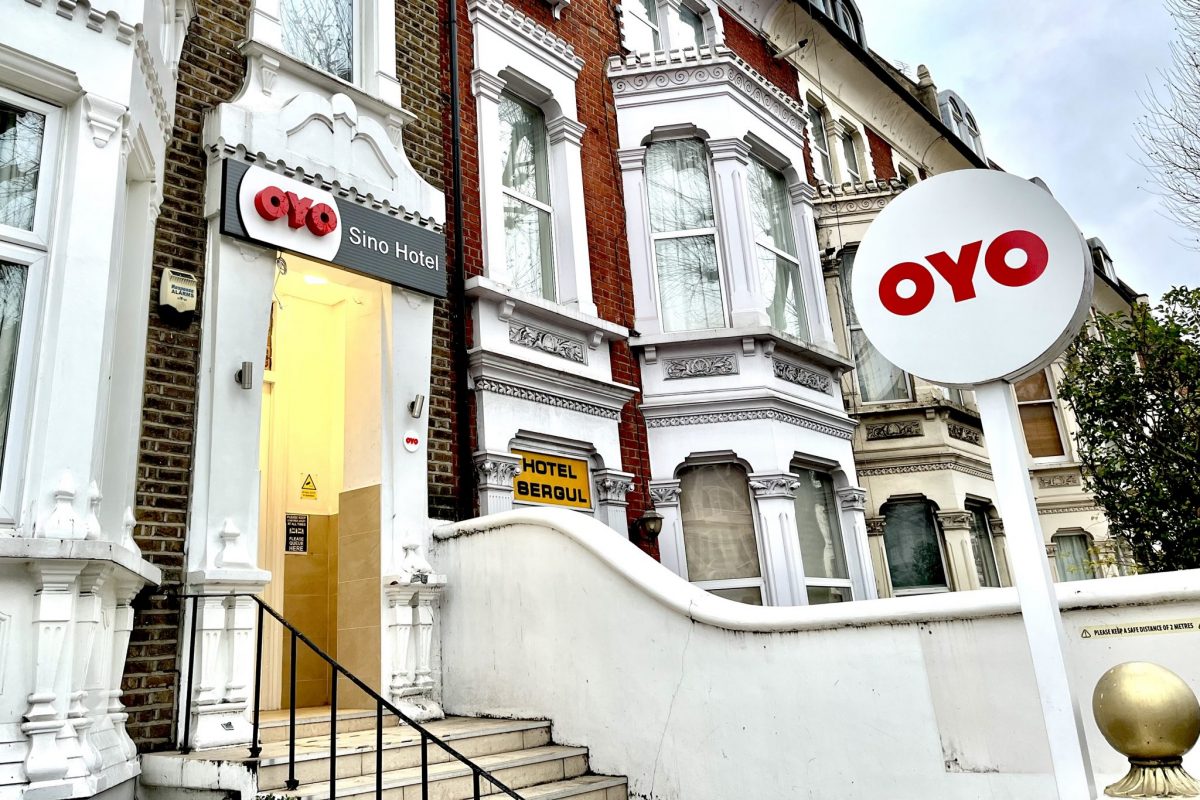Skift Take
Take that money, watch it burn? Rating agency Moody's cautioned Oyo that it should instead consider sinking in the river the lessons it's learned about profitability.
Rating agency Moody’s Investors Service said it expected India’s budget hotel chain Oyo to generate between about $50 million and $55 million in earnings before interest, taxes, depreciation, and amortization — a measure of profit — this fiscal year.
The Moody’s statement comes two months after Oyo Founder and Group CEO Ritesh Agarwal told employees in an internal townhall that the company expects to clock adjusted earnings before interest, taxes, depreciation, and amortization of nearly $97 million in fiscal 2024.
Agarwal also said at the time that Oyo had turned cash flow positive in the fourth quarter of 2023 fiscal year, reporting an earnings before interest, taxes, depreciation and amortization of nearly $30 million, the Economic Times reported.
“It may seem that the Moody’s report has predicted almost half of the nearly $97 million that Agarwal had confidently predicted, but it would be important to note that the Moody’s report is a base-case scenario and not the best-case scenario,” a source close to the company told Skift.
Stable Outlook for Oyo
Moody’s also affirmed Oyo-parent company Oravel Stay’s B3 corporate family rating while its outlook remained stable.
Moody’s assigns its B3 rating for “obligations considered speculative and subject to high credit risk.”
Moody’s said its rating for Oyo reflected the travel company’s position as one of the largest providers of budget accommodation in its key operating markets, its good long-term growth prospects for the domestic budget travel sector, and the continued support from its key shareholders.
“The stable outlook reflects our view that the company will maintain adequate liquidity buffers to support its operations until it turns cash flow positive over the next 12 to 18 months,” said Sweta Patodia, Moody’s assistant vice president and analyst.
Demand Recovery and Cost Reductions
The Moody’s forecast is based on a further demand recovery in the hospitality business, a higher number of storefronts on Oyo’s platform, and more cost reductions.
In December, Oyo announced that it would “make wide-ranging changes in its organizational structure,” cutting around a sixth of its 3,700-employee base — primarily in its product and tech teams.
However, the company had said it plans to add strength to its partner relationship management and business development teams.
Moody’s anticipates a reduction in Oyo’s operating costs as the company transfers some of its roles to India, a lower-cost location compared to Europe.
As part of its integration of various functions of its European vacation homes business progresses, Oyo said in December it would be downsizing some parts of the business to increase efficiency and harness synergies.
The startup has also reassessed its corporate headquarters and appeared to be merging roles and flattening team structures.
What Could Downgrade the Rating
While Moody’s acknowledged that Oyo also has a history of pursuing aggressive expansion and business policies that have led to significant losses, the agency said Oyo’s investors had provided substantial equity capital to cover cash burn.
That being said, the credit rating agency did sound out a warning: If Oyo doesn’t manage to significantly reduce its cash burn within the next 12-18 months, Moody’s might have to downgrade its rating.
Strong recovery in travel demand combined with various cost optimization measures undertaken by Oyo appeared to have combined to boost the travel operator’s performance during the past 12-18 months.
Excluding share-based payments, Moody’s said Oyo had been reporting positive earnings before interest, taxes, depreciation, and amortization since April 2022.
Looking Ahead to an IPO
Oyo had earlier planned to value its initial public offering at $1.1 billion, but in March, the company announced that it was reducing the size of the offering to between about $400 and $600 million.
Oyo filed the draft papers confidentially under the new pre-filing route and is waiting for approval from the Securities and Exchange Board of India.
The company plans to launch its initial public offering around the Indian festival of Diwali, which falls on November 12 this year.
Skift India Report
The Skift India Report is your go-to newsletter for all news related to travel, tourism, airlines, and hospitality in India.
Have a confidential tip for Skift? Get in touch
Tags: hotels, india, ipo, jobs, online travel newsletter, oyo rooms, skift india report, travel technology
Photo credit: Exterior of the Oyo Sino Hotel in the Shepherds Bush neighborhood of London. Source: Oyo. Skift
